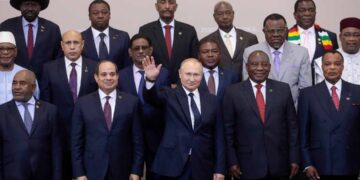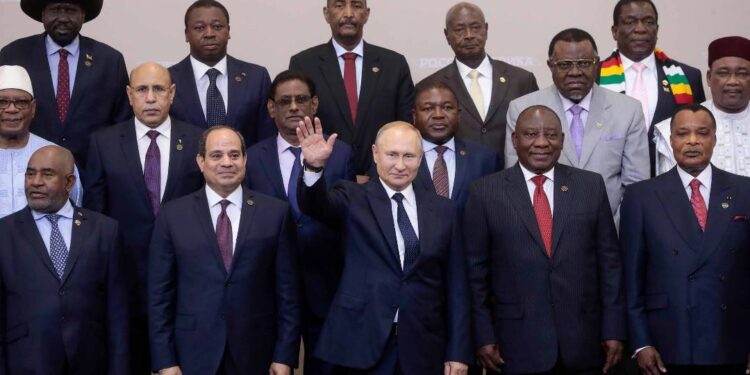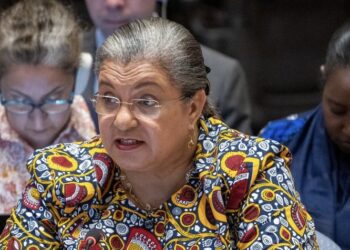By Oyintari Ben
African leaders will visit St. Petersburg this week for a high-level summit that Vladimir Putin is hosting.
This trip will show how the effects of Russia’s war in Ukraine are still felt across the continent, despite Russia’s resurgence.
Numerous African leaders attended the first Russia-Africa meeting in 2019, which served as a declaration of the Kremlin’s intentions to increase its global influence.
The successor gathering, which gets underway on Thursday, comes after a full year and a half of Russia’s all-out conflict in Ukraine.
Since Moscow pulled out of a UN-led grain accord, its military has increased its shelling of Ukrainian ports, which has several African leaders worried about potential food riots at home.
Korir Sing’Oei, Kenya’s principal secretary for foreign affairs, described Putin’s decision last week to withdraw from the agreement that allowed the export of 33 million tonnes of Ukrainian grain as a “stab in the back” that disproportionately affects countries in the Horn of Africa already suffering from drought.
Kenya has been rocked by waves of protests over rising prices.
In reference to events like this and the most recent US-Africa summit, Kenyan President William Ruto, who has not yet confirmed whether he will visit Russia, said: “Some of the people who invite us to these meetings tell us, If you don’t come, there will be consequences’.”
In May, he stated, “So all of us are forced to go to a meeting that has no meaningful outcome because of blackmail,” declining to identify the source of the covert threat. “This is not right,”
Putin has downplayed Russia’s withdrawal from the Black Sea agreement, claiming that “the West used the grain deal for political blackmail instead of helping needy countries.”
He will probably use the conference to advance his idea of excluding Ukraine from the global market and selling grain from Russia to Africa.
In order to gain support for Russia’s stance on Ukraine in the developing world, Putin has tried to take advantage of African leaders’ desires to restore grain supplies and oppose Western sanctions.
According to South African officials, Cyril Ramaphosa, the president of South Africa, would use his appearance at the summit to forward a peace plan he and three other African leaders presented during trips to Kyiv and Moscow last month. Along with unrestricted trade in the Black Sea, the proposal emphasized the value of territorial sovereignty.
Since Putin opted to skip the BRICS summit in Johannesburg next month because the International Criminal Court has issued an arrest warrant for him for war crimes, Ramaphosa will also travel with one less worry on his mind. Putin would have been legally required to be detained as soon as he arrived in South Africa.


































